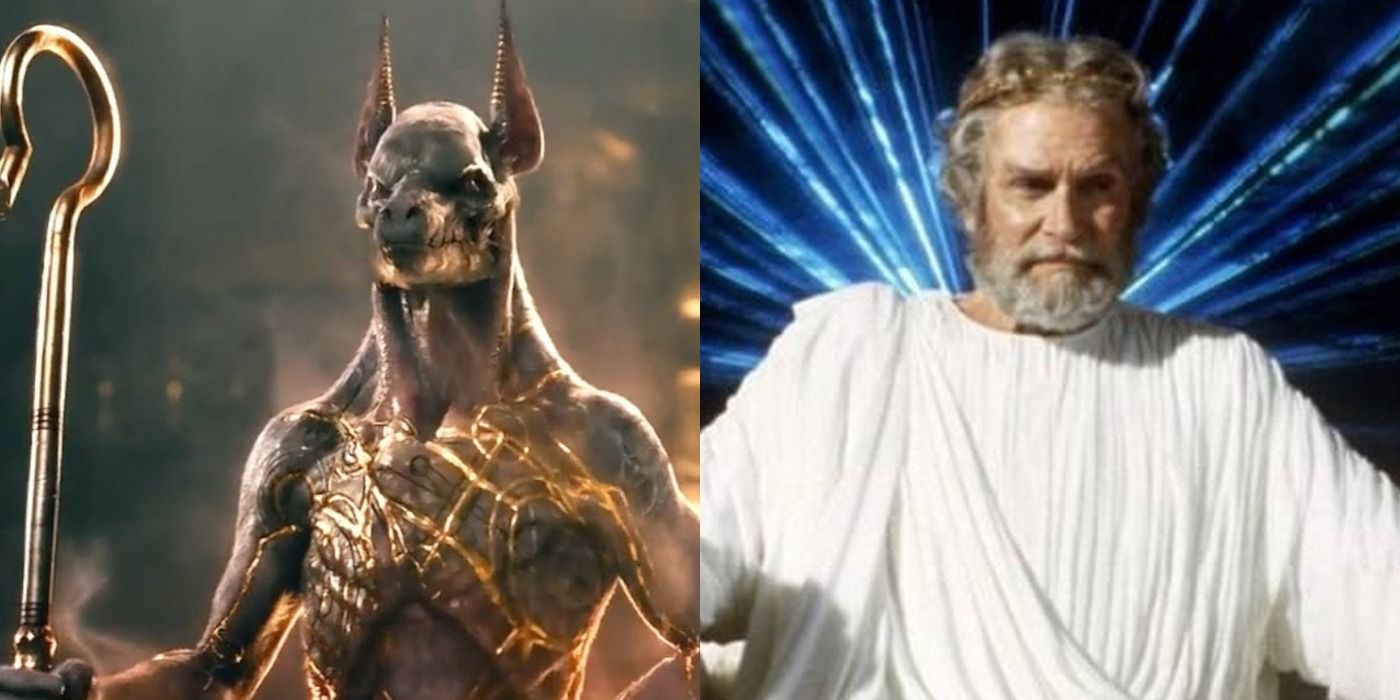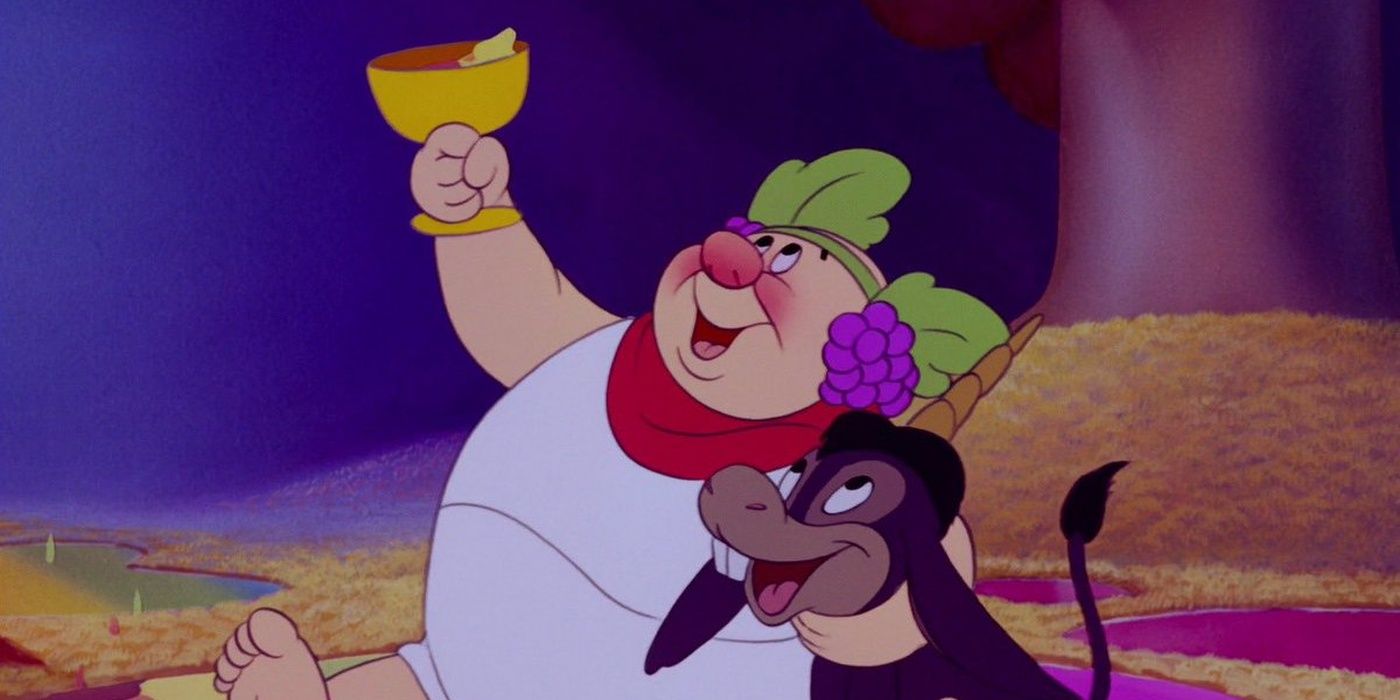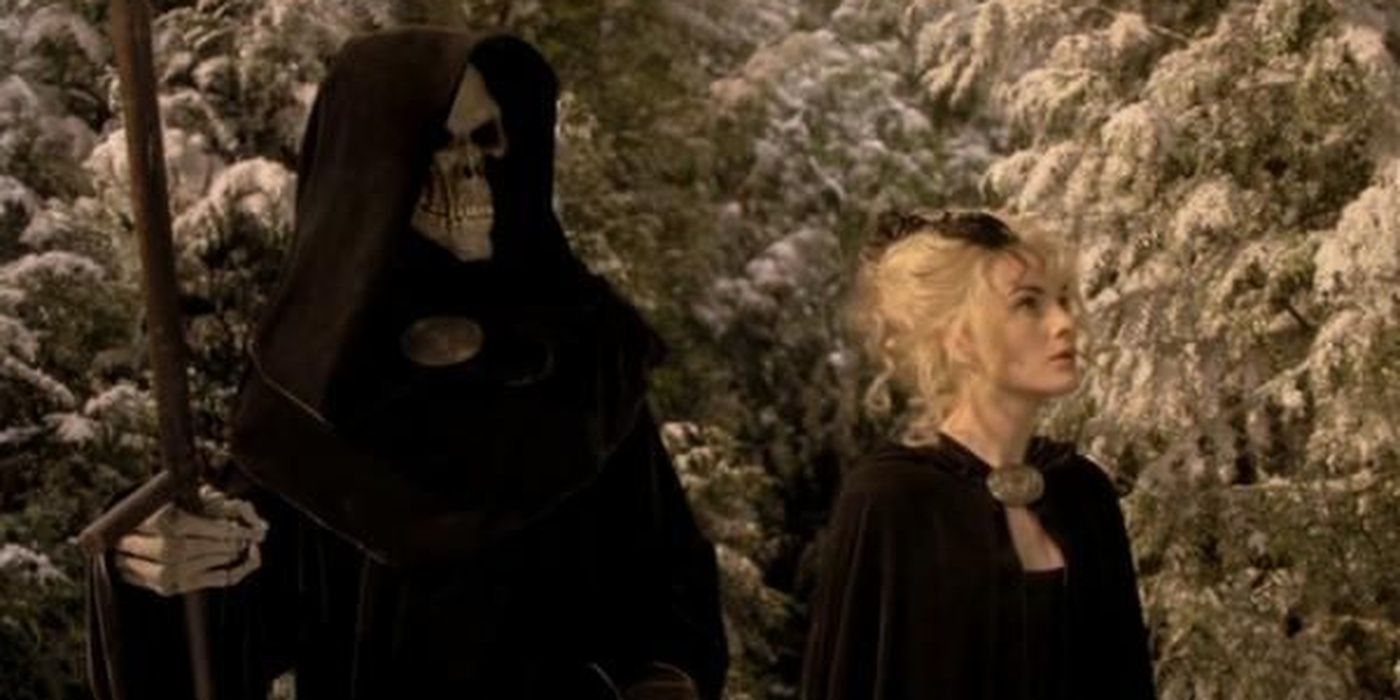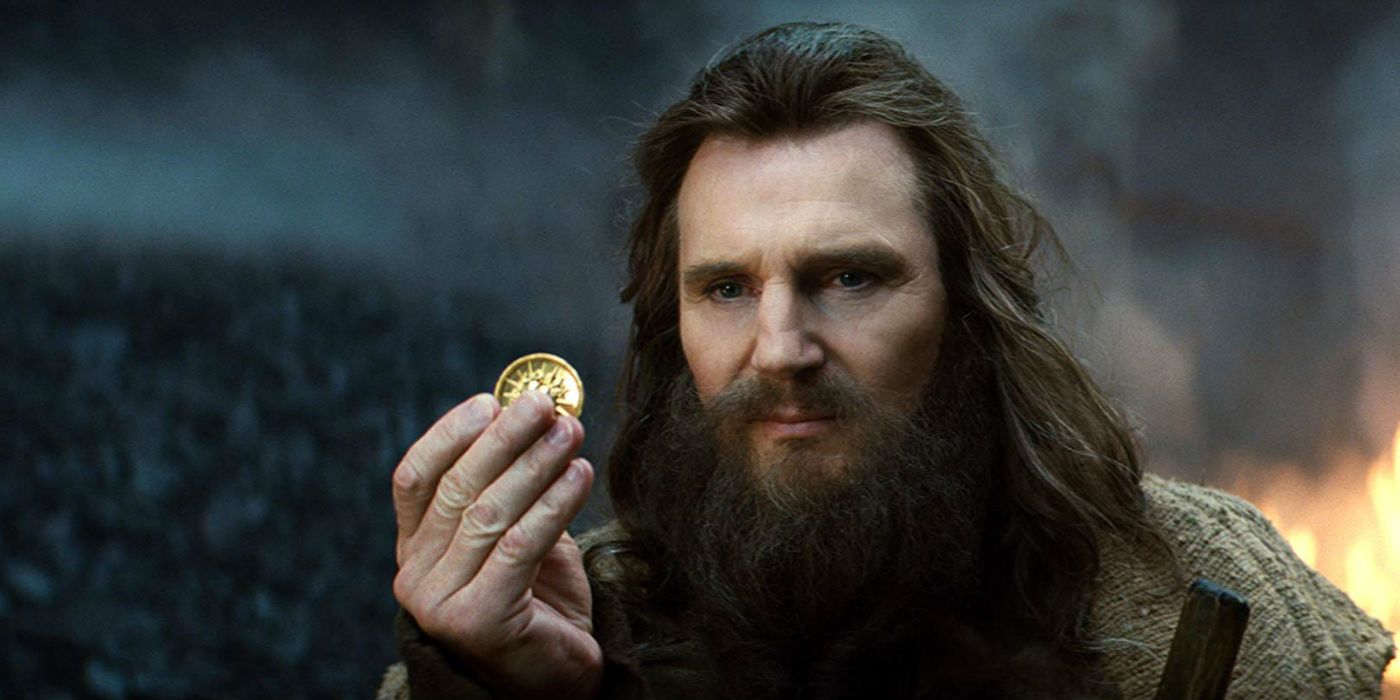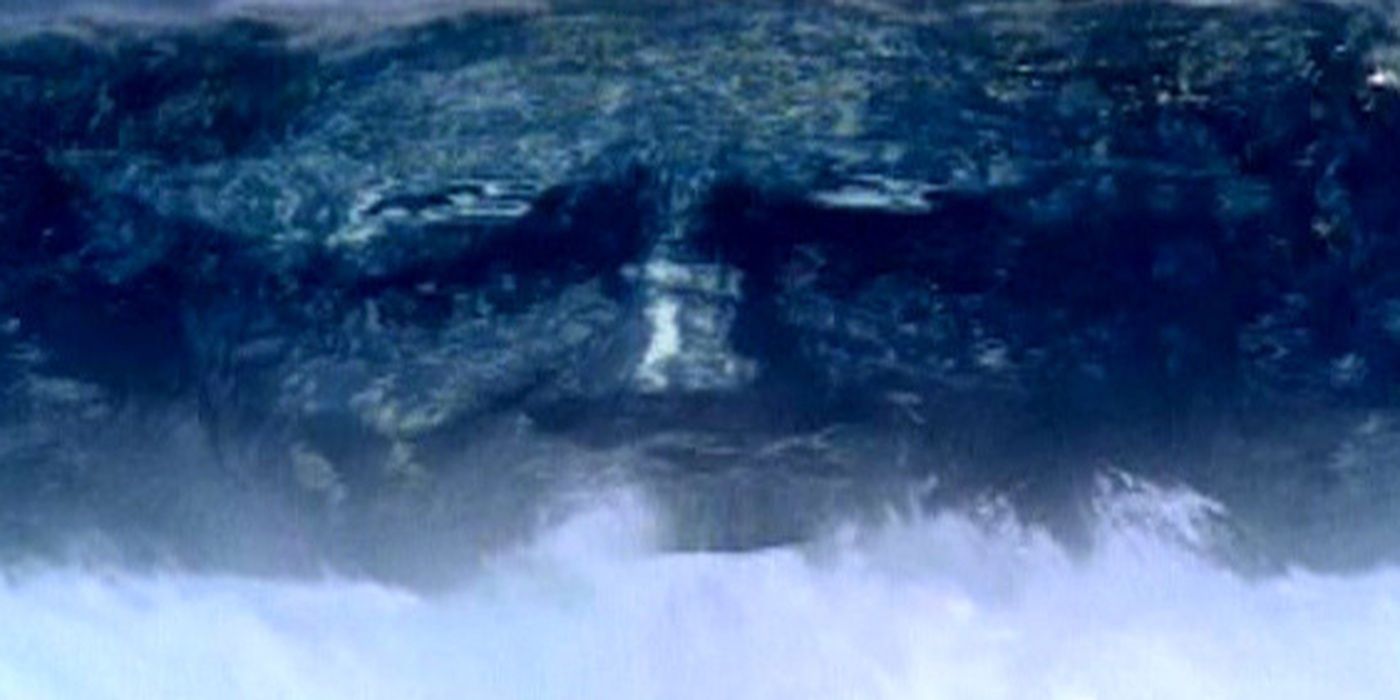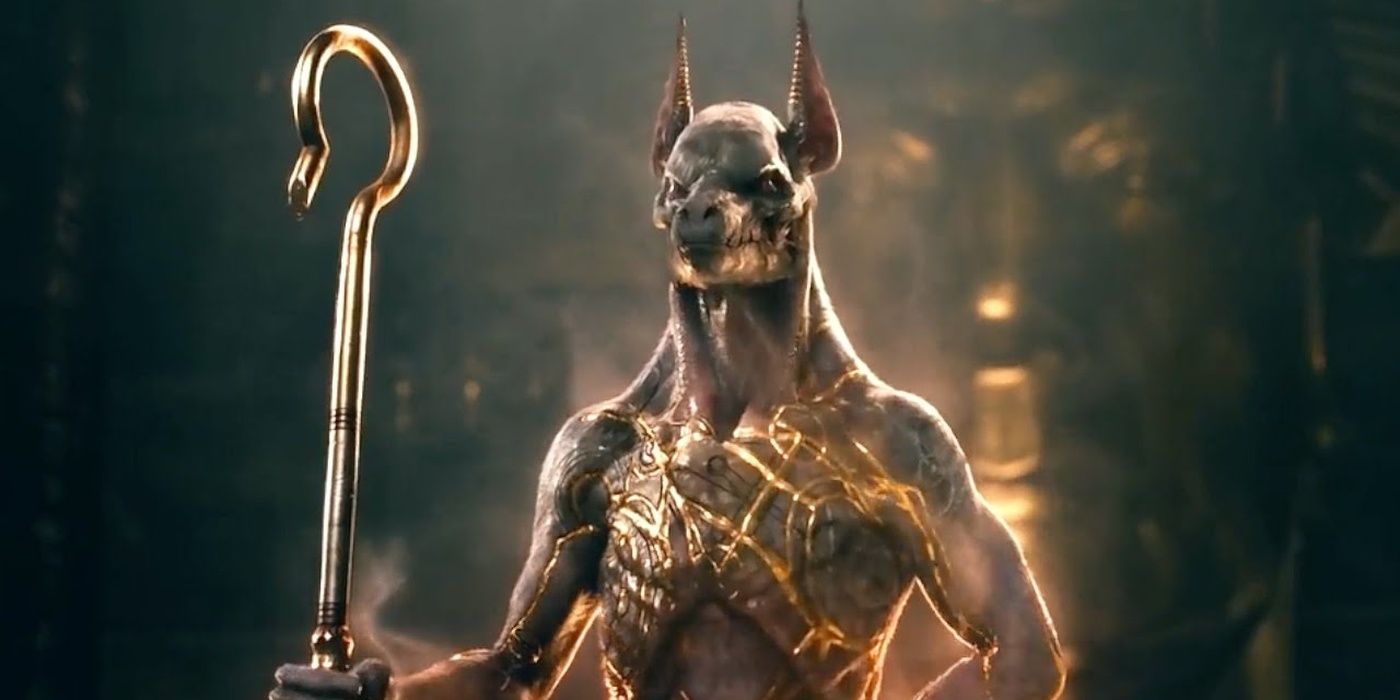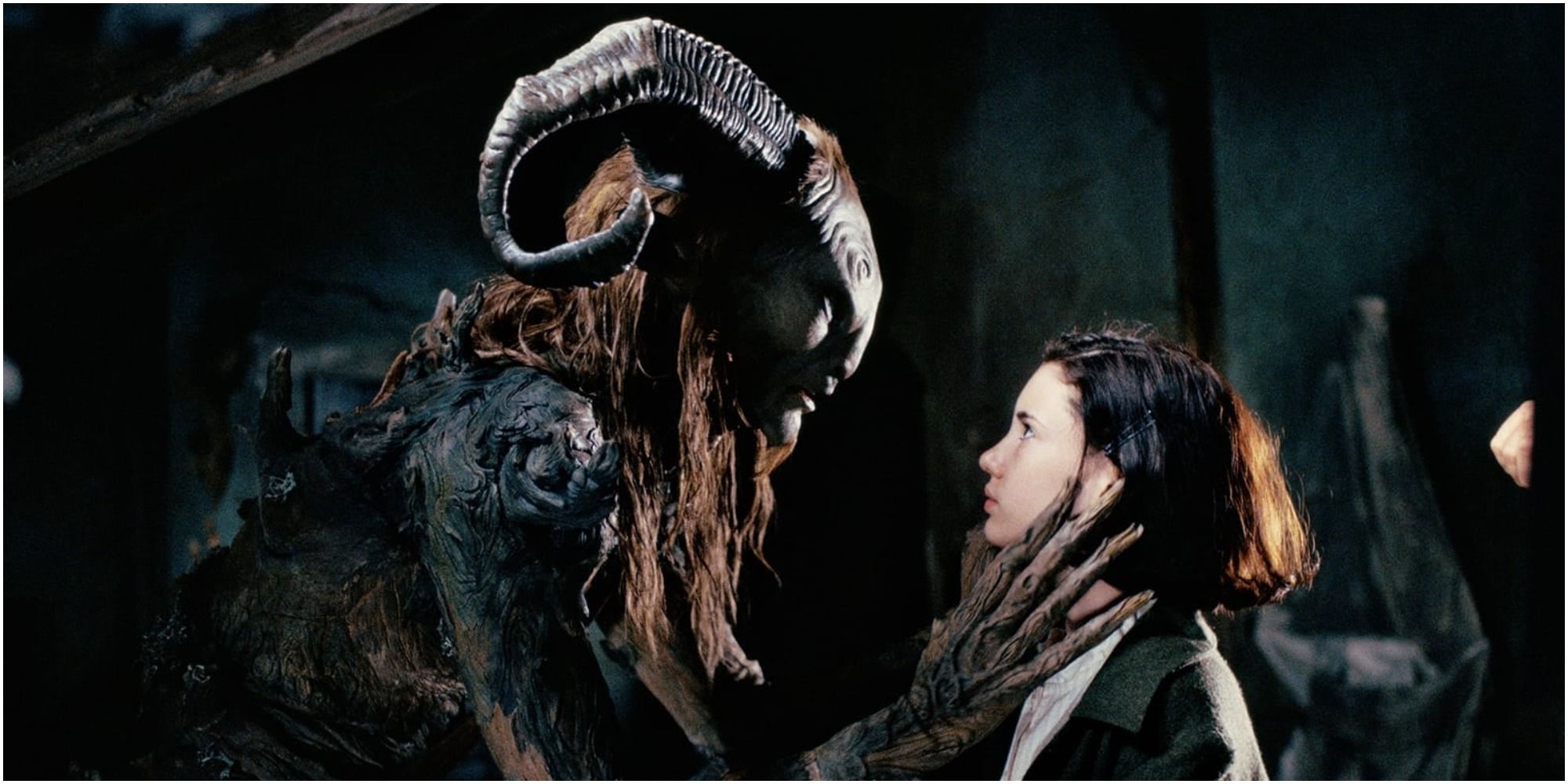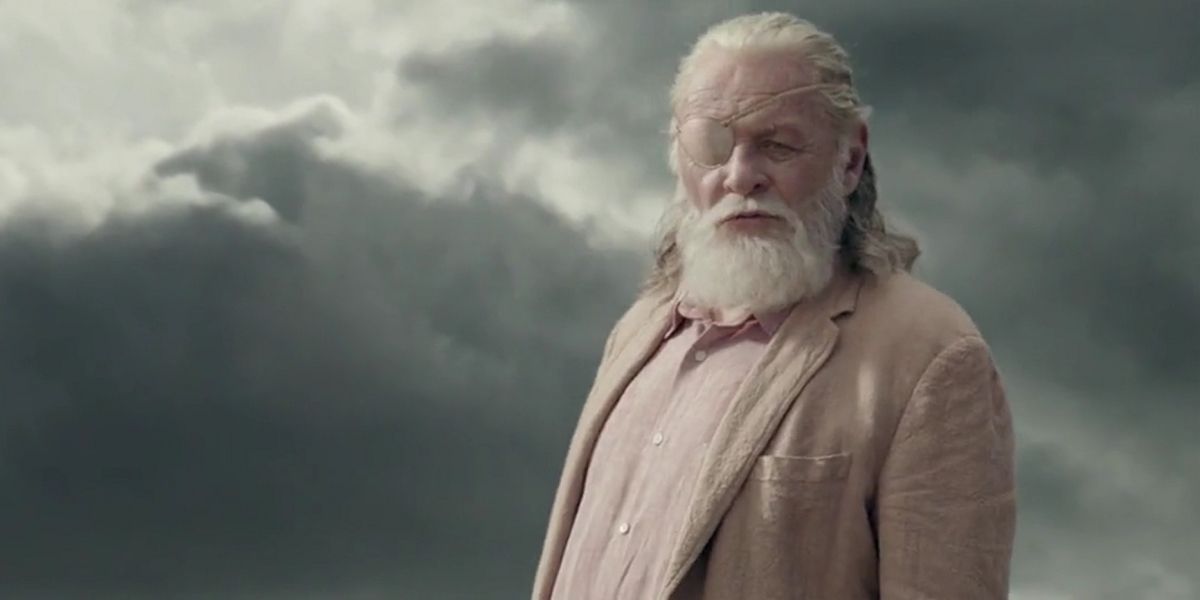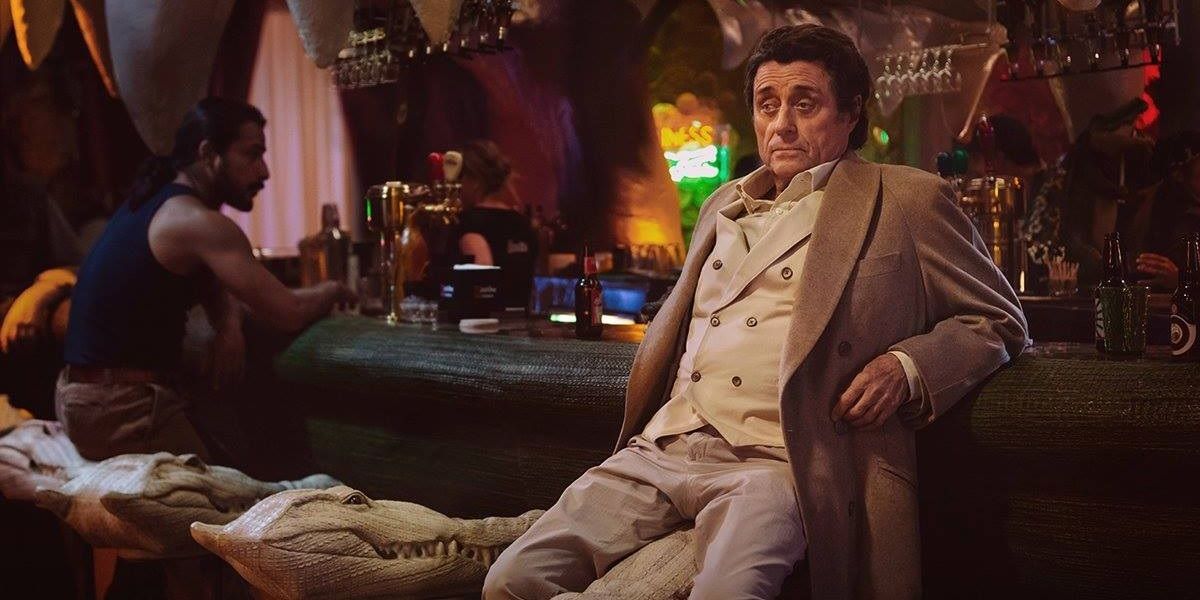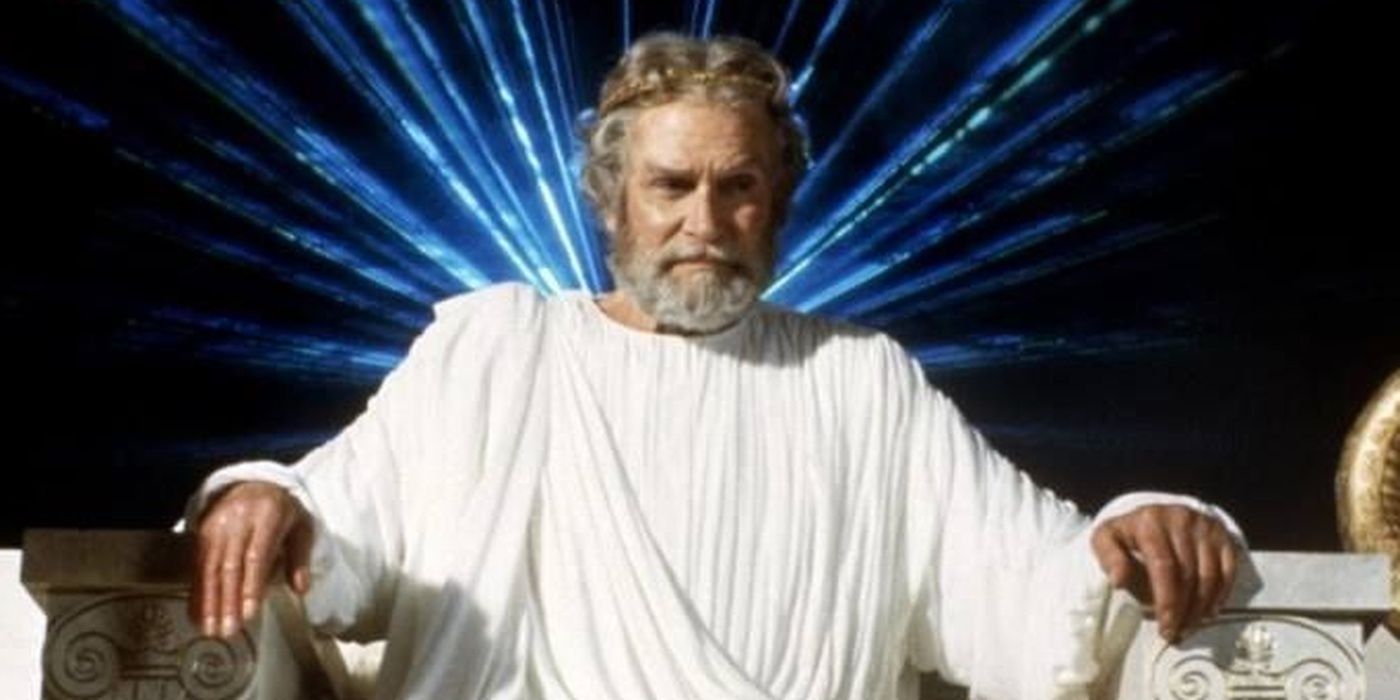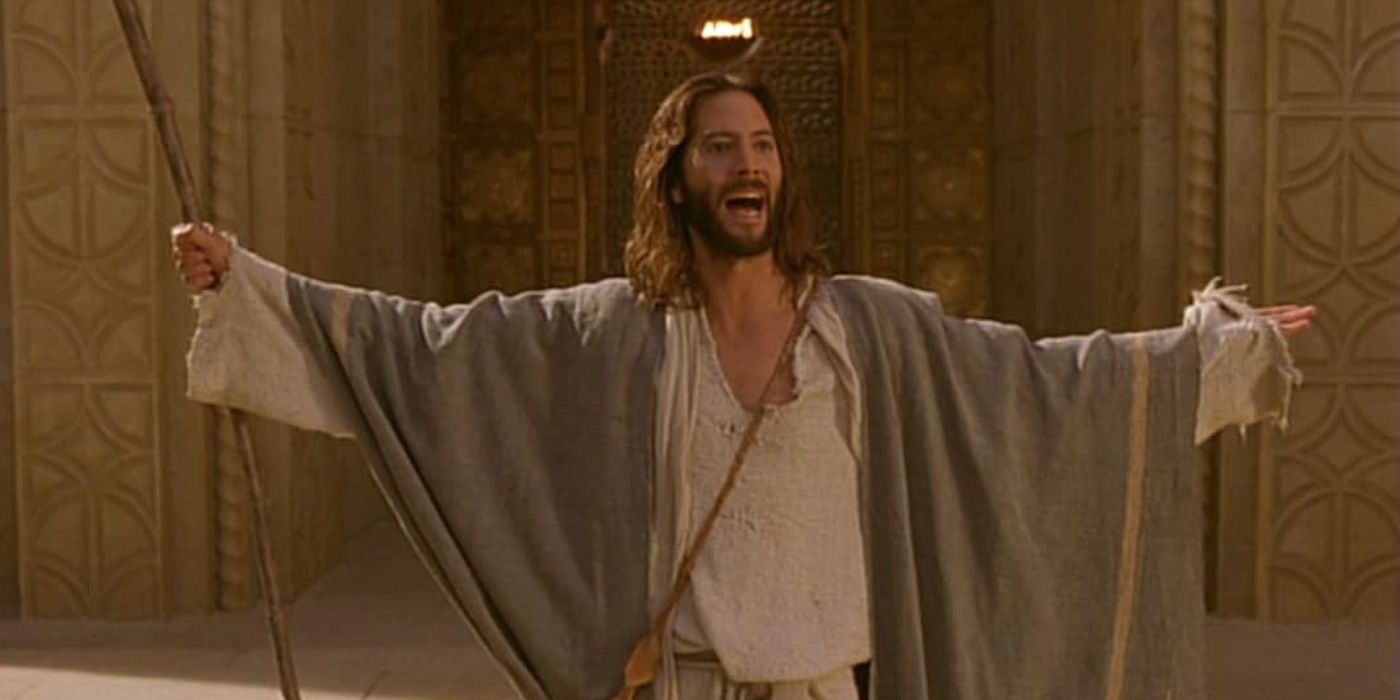Gods, goddesses, demigods, and the like are all the subjects of wonder and amazement across multiple types of media. Though it might seem a Herculean feat—pun intended—to capture a deity on film, the adaptations from Hollywood have certainly been remarkable. From Anubis to Zeus, dozens of mythological deities from pantheons across cultures have found a place on the silver screen.
These literally larger-than-life characters have inspired and appeared in many famous features and films for decades. While they certainly have been reinterpreted a multitude of times, there are several incarnations of divine characters that at least try to stay true to their source material.
Bacchus (Fantasia)
While it might be a Disneyfied version of a Roman bacchanal, the version of Bacchus seen in Fantasia is surprisingly accurate to the one seen in classic Greek mythology. He's as portly and intoxicated as a Renaissance painting, and wine flows across the scene whenever he's on-screen, a solid interpretation of the mythology if there ever was one.
In Roman mythology, Bacchus is the god of wine, drinking, song, and revelry, which is precisely what Disney's version presents. Unlike his Greek counterpart, Dionysus, Bacchus is less of a player and more of a party animal. He's even accompanied by centaurs and satyrs as they press a rich vat of wine for the harvest.
Death (Discworld Films)
Death wears many faces in the mythological realms, but one of the most common is that of the personification of a shrouded skeleton with a scythe on a pale horse. While this is nothing new in terms of film, one version that stands above the rest is the one created by Terry Pratchett in his Discworld series of books and movies.
The Discworld's Death wins a special mention simply because he's not only a recognizable depiction of the concept, but he embodies a multitude of cultural interpretations across pantheons. He has pets and a house like Hades of Greek mythology, he rides a pale horse like the Judeo-Christian Horseman of Death, and he even makes deals with mortals..
Zeus (Clash Of The Titans (2010))
When it comes to Zeus in film, the biggest thing one must consider is his performance. He is not only the lord of the skies, but he's the king of the Greek gods, as well. A a proper representation must be able to enchant and command simultaneously, which is what Liam Neeson did for the 2010 Clash of the Titans movie.
While most interpretations call for a white-haired bearded king in a toga, Neeson's Zeus has the much more leader-like presence of Zeus in myths and legends. Zeus is more than just a lustful, thunderbolt-throwing being of power; he's a complex king with desires and duties.
Poseidon (The Odyssey)
This TV movie adaptation of The Odyssey definitely didn't skip on the mythological elements, including the gods themselves. But, one of the most unique in the film definitely has to be Odysseus's nemesis, Poseidon. The lord of the oceans is as temperamental, violent, and as changing as the seas he commands, so the filmmaker's made him the sea itself.
Poseidon has been portrayed for years as a merman with a crown and a trident, but this adaptation feels more in his element, literally. The way he toys and tosses Odysseus across the waves is certainly one of the most in-character portrayals out there. The special effects didn't age too well, but it's still a unique version.
Anubis (Gods Of Egypt)
As per Rotten Tomatoes, 2016's Gods Of Egypt wasn't very well received, and, while a proper adaptation of the Egyptian pantheon is still out of reach for film, there is definitely something to be said about this movie's version of Anubis. Where other adaptations portray him as a zombified dog monster, this version depicts him as the same intimidating guardian of the dead that he is in the mythos.
Armed with a staff and portals to the afterlife, this Anubis is a mix of guide and guard of the underworld. While his canine form is certainly intimidating, to call him a monster would be unkind and untrue.
The Faun (Pan’s Labyrinth)
Pan is an interesting character in mythology in general, but, if there's one version that captures the earthly essence of this ancient being, it's Guillermo Del Toro's titular faun from Pan's Labyrinth. He isn't just some big hairy goat-man waiting in the woods with sprites and fairies, but a being as old and gnarled as nature itself.
There's a strange mystical beauty about the Faun, and, while he doesn't have any god-like features seen in other deities, there's no questioning his command over the labyrinth and the magical world. Del Toro obviously did his homework while crafting this strange and unusual character.
Odin (Thor Series)
The Alfather himself is a very entertaining entity to see brought to life, especially given all of his stories in Norse mythology. and it takes a cunning and clever performance to do this character justice. Although the mythos is somewhat skewed to fit the superhero narrative, the MCU's version alines surprisingly close to the original stories.
Odin isn't just the father of all the gods, the king of Asgard, and the slew of other titles that follow him; he's cunning, dangerously intelligent, and possesses the sharpest wit of all the gods. Marvel's version definitely seems to hit that right on the head as far as personality goes. His golden costume might raise a few questions, though.
Mr. Wednesday (American Gods)
An honorable mention, but a mention that warrants a spot on the list nevertheless. If there's one version of Odin that perfectly captures the god's personality and character qualities, it's the one created by Neil Gaiman in American Gods. While he lacks the Viking garb, this modern Alfather possesses all the personality traits the mythological Odin had and then some.
He's not only clever—he's downright crafty. He's not only wise, he's wicked—but in a good way. He's a man who knows what he wants, how to get it, and what it will cost in the end. A man on a mission, this is one god that will always have the upper hand.
The Olympians (Clash Of The Titans (1981))
The original Clash of the Titans has a pantheon of gods and goddesses that could warrant their own list. So, here they all are in their shimmering '80s fantasy glory, though they might appear a tad cliche by today's standards. The Olympians are charged with some stellar power and performances from legends like Maggie Smith and Lawernce Olivier as Thetis and Zeus, respectively.
The Olympians in this adaptation of the Perseus myth have an almost alien quality to them as if they are a separate species from the mortals entirely, much like some of the original legends. They live apart from their playthings on earth, but they rule over them more like a unit with Zeus at the throne.
Jesus Christ (The Gospel Of John)
While there are certainly plenty of top candidates for the best and most accurate depiction of Jesus, The Gospel of John has been considered by many to be the most accurate biblical film out there, and it's an endlessly beloved movie.
Remembered by ChristianityToday as a more or less verbatim adaptation of its source material, the film covers the events from the book of John in a three-hour biblical epic. Of course, that's to be expected given the incredibly detailed source from which the film drew.

